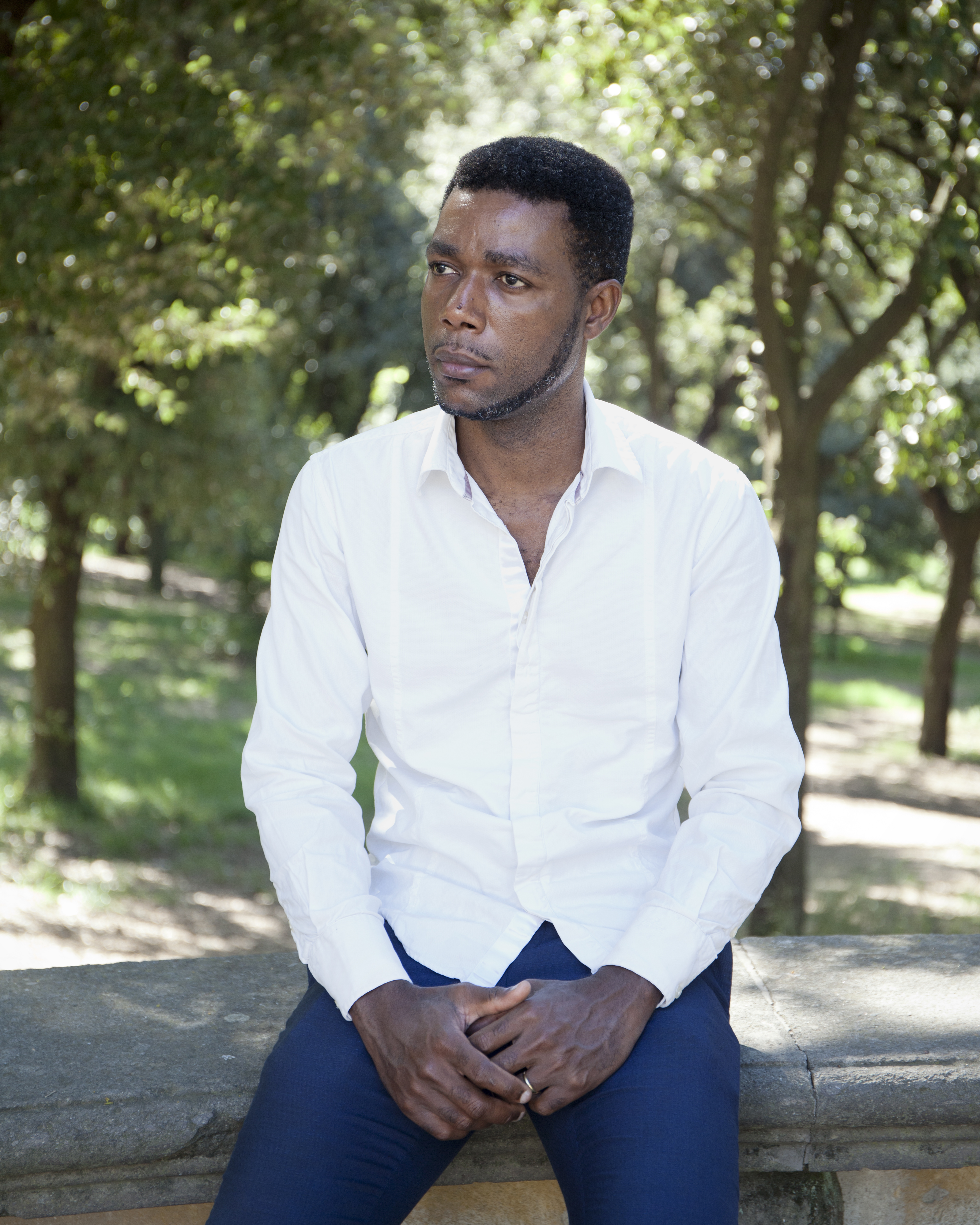This story appears in VICE Magazine's Power and Privilege Issue. Click HERE to subscribe.
Yvan Sagnet was born in Cameroon in 1985, but grew up dreaming of Italy. From the time he was a child, he had always been fascinated by the country and, most of all, by Juventus FC, a soccer team from Turin, and its most famous player, Roberto Baggio. So when he was granted a student visa to attend the Polytechnic University of Turin in 2007, his dream suddenly seemed within reach.
But university was a lot harder than he had imagined. And after he failed two exams early on, his scholarship was pulled, meaning he had to find some extra money to cover his tuition. In need of some quick cash, he didn’t think twice about signing up when a friend told him about the seasonal tomato-picking jobs in southern Italy.
When Sagnet arrived in the town of Nardò, in Puglia, he was shocked: The area was scattered with improvised camps where around 800 day laborers—mostly migrants, both legal and undocumented—were being exploited by so-called caporali (gang masters). The caporale’s job was to find readily available handpickers on behalf of farmers, eventually taking a cut from the worker’s wages while also charging them for the most basic amenities, like transportation, food, and water.
At the farms, migrants were made to work for up to 14 hours a day in extreme heat without an employment contract, earning far below the minimum wage. “I discovered the dark side of Italy,” Sagnet recalls. “A side made of ghettos, with migrants living in inhumane conditions, often sleeping either on the ground, in tents, or in makeshift shacks.”

Facing a potential hunger crisis, Sagnet had to come up with a plan. With the help of volunteers and activists, Sagnet and his team decided to reach out to the general public for help. “The response from the people of Nardò and across Italy was overwhelming,” he says. Before the strike they had no idea the scale of what was going on in their own region, Sagnet tells me. “Donations were coming in from all over the country. Every night, people would bring rice, milk, bread. This is how we didn’t starve.”
To keep their wider support network going, they worked hard to educate the public on the issue by developing strong relationships with the media. Sagnet used part of that relationship to highlight how the migrants in particular were taking a huge risk by going on strike to stand alongside Italians in their fight for workers’ rights. “Our cause showed immigrants in a different, positive light,” he says. “After all, it was everybody’s struggle.”
Sagnet’s focus on the struggle eventually paid off. The Nardò uprising inevitably put pressure on politicians, who in turn responded by approving the first anti-gang-master law—legislation that stopped agents from cutting into the workers’ wages. The strike also led some local farmers to introduce regular contracts, giving more money to the workers. (The regular contracts and higher wages are independent from the law; they were implemented as a side result by the local farmers in Nardò.) All this was introduced just a week after the strike ended, in September 2011. “For us [the law] was a huge success, because it finally gave the police a tool to crack down on gang masters,” Sagnet explains. “By the end of the 2011 harvest season, we had gone from 3 percent of workers having employment contracts to 60 percent.”
“Our cause showed immigrants in a different, positive light,” he says. “After all, it was everybody’s struggle.”
In addition, charges were eventually brought against the gang masters and farmers who had exploited the workers, leading to a 2017 trial in which 12 people were convicted of enslavement and human trafficking.
After the uprising, Sagnet started working for CGIL. “I asked [CGIL] to change their approach: to go into the fields and see the exploitation for themselves.” By taking that approach, Sagnet adds, “We discovered that the same system that was in place in Nardò was widespread.”
Sagnet has since made it a priority to raise awareness among migrant agricultural workers—who, according to his estimates, make up 60 percent of this seasonal workforce. “Workers in the ghettos don’t know what unions are,” he tells me. “They do not speak Italian or have access to information. They think it’s normal to live and work like that. Without help, there can be no investigations or arrests.”
On the contrary, he adds, if workers aren’t involved, “those who exploit us and put us in those conditions will always win. Authorities are either slow, or complicit, or corrupt. What I’m seeing is a class struggle going on—but at the moment there’s just one side, the one represented by power.”
Sign up for our newsletter to get the best of VICE delivered to your inbox daily.
from VICE US https://ift.tt/2OYj4QU
via cheap web hosting
No comments:
Post a Comment